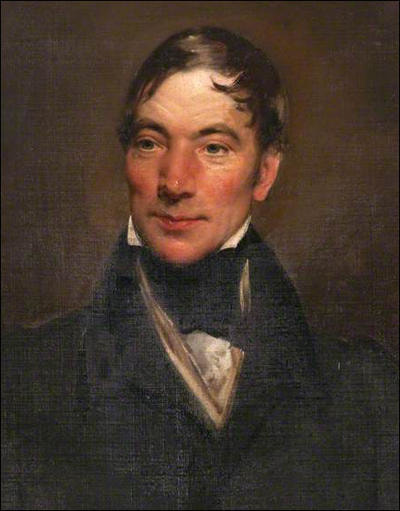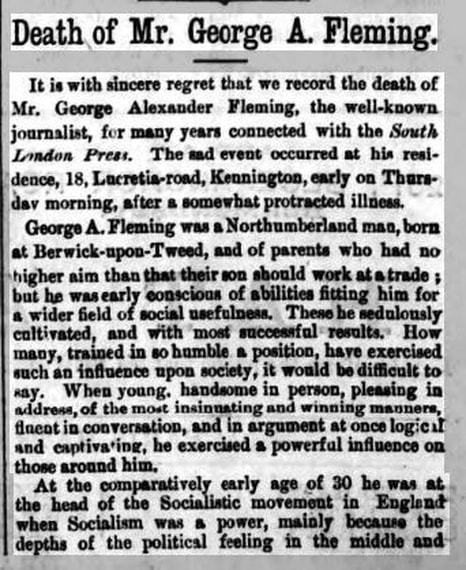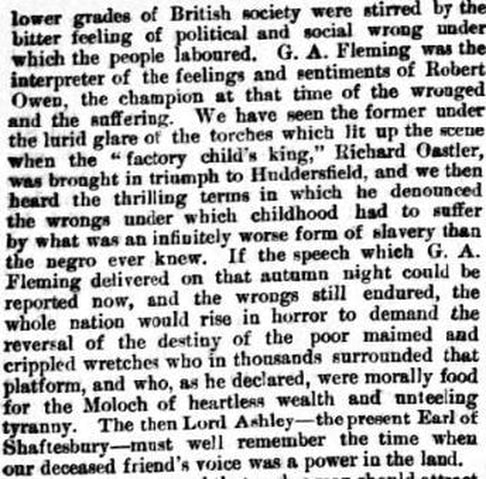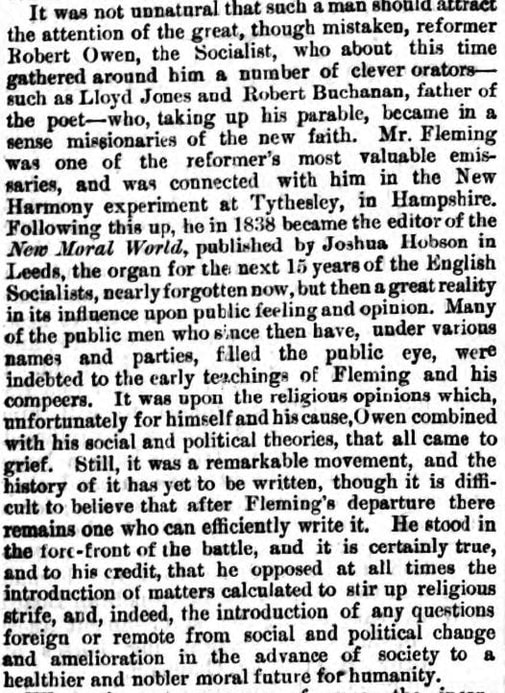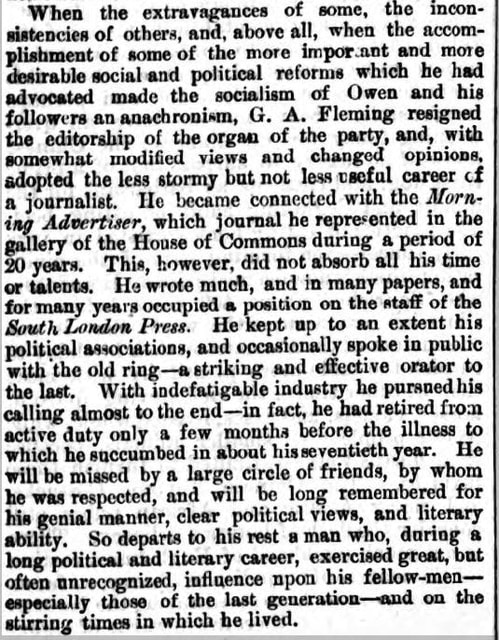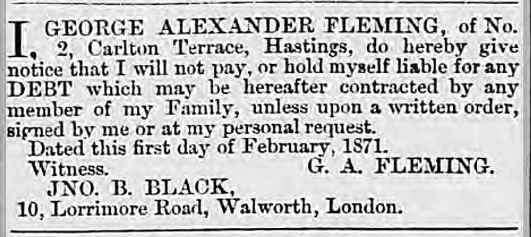|
It’s not everyday you stumble across the occupation ‘Parliamentary Reporter’ in the 1841 census, let alone one that was born in Berwick upon Tweed. Intrigued, I set off to retrace his life’s journey. A memorial of his career written in 1883 described him as ‘A big burly man, possessing a burly mind … he died after a hard working life which he commenced as a journeyman painter at Berwick on Tweed’. The earliest record found for George to date is the baptism of his son John Fleming at Holy Trinity Church in Berwick. At the time he was described as: Shortly afterwards the family moved to Salford, Lancashire where daughter Isabella was born in 1836, closely followed by a son Robert Owen Fleming in 1838 and herein lies the clue. Born on the 14th May 1771, in Newtown, a small market town in Wales, Robert was the sixth of seven children born to the local saddler and ironmonger. He was an intelligent boy who read avidly, loved music and was good at sports. He began his career in the textile industry early on, from around the age of 10. By the time he was 21 he was a mill manager in Manchester. His entrepreneurial spirit, management skill and progressive moral views were emerging by the early 1790s. In 1793, he was elected as a member of the Manchester Literary and Philosophical Society, where the ideas of reformers and philosophers of the Enlightenment were discussed. He also became a committee member of the Manchester Board of Health which was set up to promote improvements in the health and working conditions of factory workers. Meanwhile, in Scotland, New Lanark Cotton Spinning Mills were being established. This enterprise was to prove pivotal in Owen’s career as a businessman and social pioneer. Manchester and Salford displayed vibrant support for Owenism the Salford Social Institution, a large meeting place for the local Owenites, and the first in the country, was opened in the late 1830’s. George Alexander Fleming was active in the early co-operative movement in Salford, including the Salford co-operative store and the co-operative school. He was instrumental in the founding of the Salford Community Association in 1836. Fleming was later prominent in the Association of All Classes of All Nations, and was editor of the New Moral World, and later of the Moral World. After the end of the Owenite movement, he was involved with the League of Social Progress and the Co-operative League. (John C Langdon) DPhil University of York, 2000. It would have been around this time as the Community Association’s secretary that he wrote and delivered a lecture entitled ‘The Infidelity of the Professed Church or, The Church and Competitive Society Tried By The Bible And Convicted’ at the Salford Social Institution. By the time of the 1841 census George was firmly entrenched in his journalistic and literary career and living with his family at Alfred Place in Leeds. By 1842 he had moved to London where his youngest daughter Emily, (another colourful character) was born. An obituary which appeared shortly after his death in 1878 reflects an interesting, varied and principled life. In the 1840s, Robert Owen embarked on a new settlement at Queenwood Farm in Hampshire. This land was originally part of the manor of East Tytherley, called Columbers in the 15th century. He rented out the 1000 acres and built a luxurious mansion, Harmony Hall, as his centre for Social settlement. There was insufficient capital and the community, intended to support 500 members, barely reached a hundred souls. It was an abject failure, running out of funds and discipline. His followers Owenites were bitterly disappointed and he moved on. Robert Owen continued his evangelistic approach and was never silent on the subject of Socialism. http://www.hampshire-history.com/robert-owen-pioneering-socialist/ It is interesting to note that whilst he would be ‘missed by a large circle of friends’, no mention is made of a widow or family. Together with his wife Isabella Gray, the couple had 6 children, 3 boys John, Robert Owen, George Alexander jnr and 3 girls; Isabella, Jane and Emily. George’s wife Isabella died in London in early 1861 and by 1871 George, a widower and three of his unmarried children had moved to Carlton Terrace in Hastings where this curious notice appears in the press. Is it possible his family was bleeding him dry? Certainly by the time of his death in 1878 in London his estate was valued at under £200 and he had acquired a wife for whom no marriage, or any other record for that matter can be found! I suspect his Will may make interesting reading! Are you related to this extraordinary man or the elusive Anna Maria Lovelace? - if so we would love to hear from you.
2 Comments
|
AuthorSusie Douglas Archives
August 2022
Categories |
Copyright © 2013 Borders Ancestry
Borders Ancestry is registered with the Information Commissioner's Office No ZA226102 https://ico.org.uk. Read our Privacy Policy

